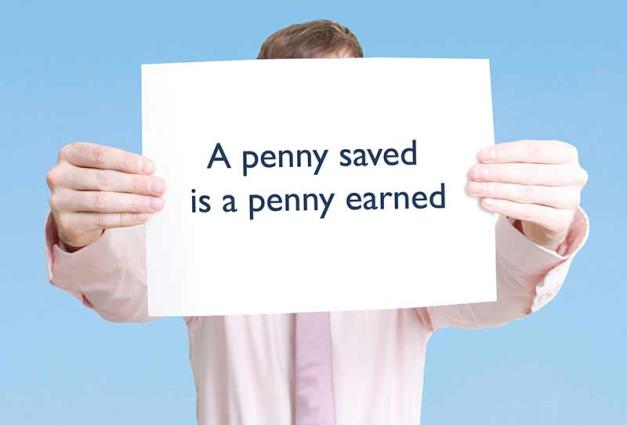Imagine that a trolley is running toward five people who are unable to get off the track in time. You can’t help those people to get off the track, but what you can do is flip a switch. Flipping the switch will cause the trolley to change onto another track—where only one person is standing. If you flip the switch, one person dies. If you don’t flip it, five people die. What do you do?
Have you made a decision? If so, what do you think Donald Trump would do in this situation? What about Barack Obama? A big-company CEO? A mid-level manager? What these people have in common is power. Do people with power respond to moral dilemmas, such as the trolley problem, differently? This is an interesting and important question considering that powerful people make many important decisions in our society. So, my colleagues and I set out to investigate.
Previous research on this question is divided. Some research shows that powerful people are more likely to not flip the switch and just let the trolley run its course. In many people’s minds, flipping the switch would seem to “actively” kill the single individual standing on the other track. Moral rules forbid killing people, so some people conclude that flipping the switch is immoral. So, they don’t do it. We call this a “deontological decision” because deontological ethics consider actions as moral if they follow moral rules. Powerful people might follow moral rules because it may be in their best interest to follow rules in general, as many rules often favor the powerful.
Other researchers argue that powerful people should be more likely to flip the switch. Flipping the switch would kill only one person instead of five, which certainly seems like a better outcome, so it seems moral to flip the switch. We call this a “utilitarian decision” because utilitarian ethics consider actions as moral if they cause the best outcome for most people or the community at large. Powerful people might be more likely to look for better outcomes because they are better at pursuing their goals. They are also better at regulating negative emotions that come along with breaking moral rules.
Both explanations seem plausible, so we set out to systematically investigate what power actually does to moral decision making. First, we looked at how power influences moral thinking. Four different moral thinking styles affect moral decisions. These styles involve making moral decisions by following one’s emotions, following rules, deliberating about moral dilemmas, and integrating emotions with thinking.
In two experiments, we varied how much power our participants had in the study and found that participants who were given more power showed higher values on three of the four moral thinking styles, namely on following rules, deliberating, and integrating emotions with thinking. This is interesting as it indicates that people who are in a position of power may show increased moral thinking overall.
Next, we wanted to find out how this increased moral thinking translates into decisions in moral dilemmas such as the trolley problem. To do so, we conducted two more studies. Unlike in the first two studies, we measured people’s feelings of power (rather than assign them to more powerful positions). For example, we asked participants whether they thought they could get other people to do what they wanted. As in the first two studies, powerful people exhibited higher moral thinking overall in the same three thinking styles. Specifically, participants who felt more powerful overall indicated that they followed rules more, that they deliberated about decisions more, and that they integrated their emotions with their thinking more. Yet, surprisingly, powerful people made the same moral decisions as less powerful people.
Why did powerful people’s higher moral thinking not translate to different moral decisions? The answer may lie in the fact that different moral thinking styles can cancel each other out. For example, integrating emotions and thinking to make moral decisions leads to more deontological decisions (such as following moral rules like “Do not kill”), whereas deliberation leads to less deontological decisions. Powerful people engage more in both integration and deliberation, so the two thinking styles cancel each other out. In the end, powerful people make the same kinds of moral decisions overall that people with less power do.
These findings might explain inconsistencies in previous research. Possibly, the particular thinking style that powerful people use to make moral decisions depends on the situation. For example, they might deliberate more if the decision is very important, but they might follow rules more if the decision is not important. If powerful people deliberate more, they might be more likely than powerless people to flip the switch on the trolley; but if powerful people follow rules more, they might be less likely to do so. The ways in which features of the situation influence moral thinking need to be studied in future research. Researchers should also investigate other moral thinking styles than the four that we studied. For example, some people’s moral decisions are affected by wanting to appear a certain way to others, which could push their decisions in particular directions.
Overall, in contrast to the commonly-held view that “power corrupts,” our findings suggest that powerful people engage in more moral thinking than less powerful people do. However, because different moral thinking styles can cancel each other out, their increased moral thinking does not necessarily translate into better moral decisions. Overall, powerful people make similar decisions as you and me in most moral dilemmas—which may run counter to our expectations.
For Further Reading:
Fleischmann, A., Lammers, J., Conway, P., & Galinsky, A. D. (2019). Paradoxical effects of power on moral thinking: Why power both increases and decreases deontological and utilitarian moral decisions. Social Psychological and Personality Science, 10, 110-120. https://doi.org/10.1177/1948550617744022
Alexandra Fleischmann is a PhD student in social psychology at the Social Cognition Center Cologne (University of Cologne, Germany). Her research focuses on morality, social comparisons, and gender.




